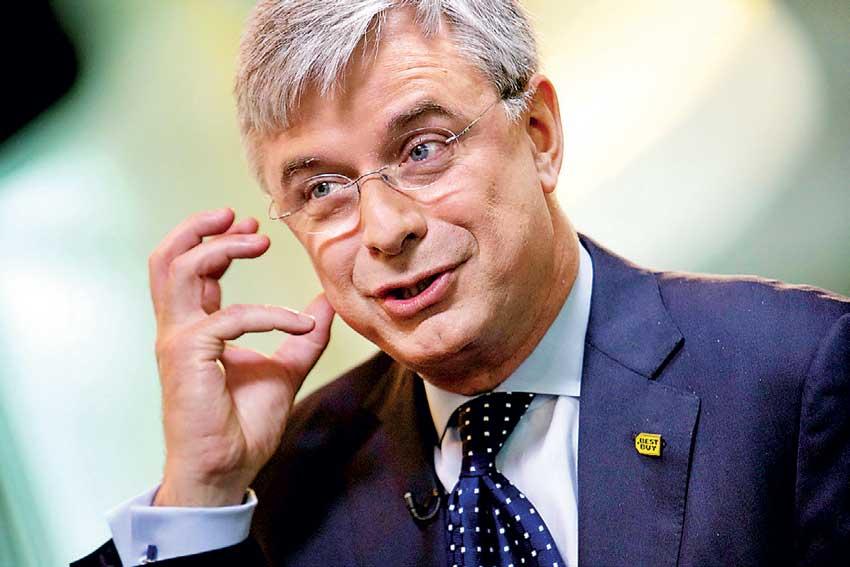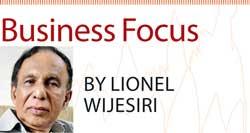24 Feb 2020 - {{hitsCtrl.values.hits}}

 Hubert Joly (born August 11, 1959) is a businessman, currently serving as Executive Chairman of Best Buy. He was the former President, CEO and Director of Carlson Wagonlit Travel (CWT). It is a privately held international conglomerate in the hotel, travel and restaurant franchise industries, employing more than 175,000 people in more than 160 countries
Hubert Joly (born August 11, 1959) is a businessman, currently serving as Executive Chairman of Best Buy. He was the former President, CEO and Director of Carlson Wagonlit Travel (CWT). It is a privately held international conglomerate in the hotel, travel and restaurant franchise industries, employing more than 175,000 people in more than 160 countries
and territories.
He took the positions in March 2008 as a replacement for Marilyn Carlson Nelson, the daughter of the founder Curt Carlson. Under his leadership, CWT grew its annual sales from US $ 8.9 billion in 2003 to US $ 25.5 billion in 2007.
On August 17, 2012, Joly resigned from his position with Carlson to take the position of CEO at Best Buy. Under Joly and his Renew Blue transformation at Best Buy, the company’s stock tripled in 2013 with the focus on banking on big box stores, superior customer service, product selection and services like Geek Squad.
According to The New York Times, Joly’s top goal is matching the lowest price, determined to make sure that a customer who came to Best Buy as a showroom has no reason to buy anywhere else.
“The strategy is very simple,” he told The New York Times in 2012, soon after he took the job.
“We believe that price-competitiveness is table stakes. The way we want to win is around the advice, convenience, service.”
On January 20, 2017, a report in a Brazilian newspaper stated Joly was being considered for the CEO post at Carrefour. It is a global retail group that employs more than 360,000 people worldwide and generated 84.91 billion euro sales in 2018. Joly issued a statement saying that he absolutely has no plans to leave.
On April 15, 2019, it was announced that Joly will step down as CEO of Best Buy in June 2019. Joly became Executive Chairman of Best Buy in June 2019.
In addition to his current position as Best Buy’s Chairman, he serves on the board of directors for Best Buy and Ralph Lauren. Joly also serves on the board of overseers of the Carlson School of Management and the executive committee of the Minnesota Business Partnership. He is also a member and former chair of the board of trustees of the Minneapolis Institute of Artsand a member of the board of directors of the Minnesota Orchestra.
Joly was elected a Global Leader for Tomorrow by the World Economic Forum in 1997–1999 and honoured as one of the 25 Most Influential Executives of the Business Travel Industry (2006 and 2009) by Business Travel News magazine. He is voted No. 74 on 2018 Top 100 Highest Rated CEOs on Glassdoor, moving up from 77 in 2017. In 2018, Joly was named one of the Best CEOs In The World by the CEOWORLD magazine.
Joly is a Knight in the French National Order of Merit and in 2017, he was further awarded the French National Order of the Legion of Honour (Ordre national de la Légion d’Honneur), the highest decoration in France for civil merit.
If we go back to history, in August 2012, the electronics retailer was in big trouble. But that month Joly took over as Best Buy’s CEO following a whopping US $ 1.7 billion loss and the departure of its previous CEO in the wake of a ‘close relationship’ with a female employee.
By June 2019, when Joly handed over Best Buy’s reins to Corie Barry, who had recently served as its Chief Financial and Strategic Transformation Officer, its shares had soared 330 percent from US $ 20 to about US $ 68. S&P 500 rose 111 percent during the period and in the quarter ending May 2019, the 125,000-employee electronics retailer had earned a 3 percent net profit margin.
There are many things Joly did to turn around Best Buy but the most powerful, surprising and broadly applicable thing he did was to change the company’s approach to managing its people. Instead of treating Best Buy employees as costs to be minimised – his predecessor eliminated employee discounts – Joly prioritised creating meaning for them.
More specifically, one of Joly’s early changes at Best Buy was to describe the company’s purpose and to encourage Best Buy’s managers to listen to employees’ dreams and help connect their dreams with Best Buy’s purpose. This was a powerful and controversial idea.
Joly knows something. It works. Here are four lessons we can learn from him.
Lessons to learn from Hubert Joly
1. It starts with knowing your customer
A reporter asked Joly why Circuit City (best Buy’s competitor) failed while Best Buy survived. This is a question many clients have asked over the years.
Joly surmised it was because Circuit City had lost touch with the customer. At Best Buy they prioritise staying close to the customer, understanding their needs and adjusting to consumer shifts. This is key in the fast-moving consumer electronics retailing business.
2. Simplify logic of your strategy
In each company he turned around, Joly or the company were able to articulate a simple logic that explained a core strategy. For example, in explaining the Best Buy strategy to The New York Times in 2012 he said, “The strategy is very simple. We believe that price-competitiveness is table stakes. The way we want to win is around the advice, convenience, service.”
Think of the beauty in this simplicity. He starts the strategy from the view of the customer, for whom price-competitiveness is expected and clarifies the three areas in which Best Buy can add differentiated value: advice, convenience and service. A less experienced CEO might say something like, “We recognise retail margins on consumer electronics can rarely reach over commodity levels so we will add incremental value by emphasising service…” Boring. Unmemorable. Disconnected from the customer.
One of Best Buy’s biggest moves was to offer a low-price guarantee. What this did, he explained to reporters in Paris, was erase the view that Best Buy was becoming the showroom for online retailers. People didn’t realise that Best Buy offered products often at the same price as those Amazon.com and other web-based retailers offer. This diminished the role price plays in consumer consideration and reinforces the idea that “price-competitiveness is table-stakes”.
3. Give it a name
Your team, employees and investors are likely to forget your strategy, especially in a turn-around situation in which distracting fires pop up unexpectedly. How do you keep people focused in the same direction? Give them a short memorable name to remember. This name is easy to recall and unpacks your strategic priorities in their mind. At Carlson, for example, Joly named his strategy Ambition 2015. At Best Buy he calls it Renew Blue. The strategy’s name, preferably should be in two words or less.
4. Set and stick to priorities
In each business he ran, you will find a set of priorities he laid down, early on, after assessing the situation. His Ambition 2015 strategy at Carlson, for example, involved repositioning of the company’s core brands, operationalising the brand promises and upgrading the guest experience, boosting revenue generation focused on the web, the company’s loyalty programmes, global sales and working with the trade, as well as the global expansion of the company in key emerging countries.
At Best Buy, the strategy prioritised big box stores, superior customer service, product selection and services like Geek Squad. He then stuck with those priorities for four to five years. He doesn’t flutter or shift priorities. As he said in Paris, “Retail is a business primarily about execution.” Execute your priorities.
(Lionel Wijesiri is a retired company director with over 30 years’ experience in senior business management. Presently he is a freelance journalist and could be contacted on [email protected])
26 Dec 2024 46 minute ago
26 Dec 2024 52 minute ago
26 Dec 2024 2 hours ago
26 Dec 2024 2 hours ago
26 Dec 2024 4 hours ago